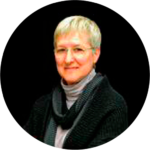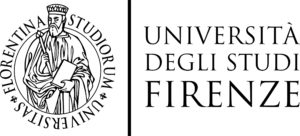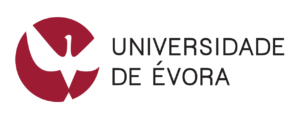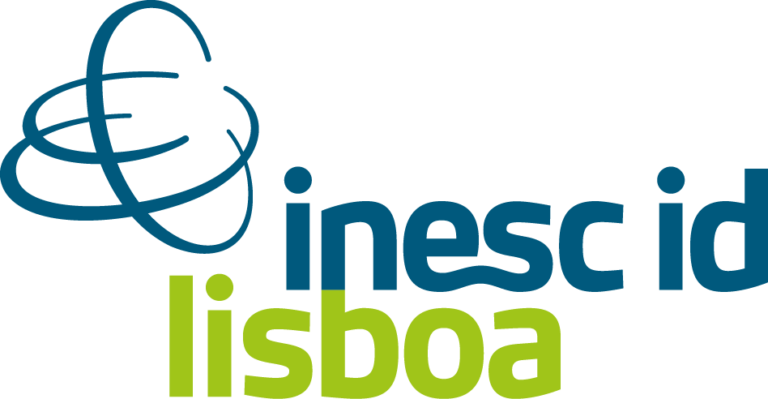Linked Archives
International Workshop
September 13, 2021 | Online
NEWS
- November 25, 2021: The proceedings are available. We thank CEUR-WS.org for publishing them.
- September 06, 2021: The working notes are now available.
- July 28, 2021: The program for the workshop is now available.
- July 25, 2021: Author notifications are sent.
- July 8, 2021: Papers were assigned to reviewers.
- July 4, 2021: Deadline for paper submissions.
- July 2, 2021: Francesca Tomasi is confirmed as a Keynote Speaker.
- June 15, 2021: María Poveda is confirmed as a Keynote Speaker.
ABOUT
The International Workshop on Archives and Linked Data run in conjunction with the 25th International Conference on Theory and Practice of Digital Libraries (TPDL 2021). TPDL 2021 will be an online event and registration will be free of cost.
Cultural Heritage deals with treasures that are expected to survive generations. Many digital initiatives have explored segments of this global asset, with much more to uncover. They tend to be oriented by the organizations that have traditionally curated these valuable objects: libraries, museums, archives.
This workshop takes the perspective of archives, the guardians of immense volumes of information, both historical and current, driven by the need to keep a record of our past processes, achievements, and results. The growing interest in archival records and the availability of technologies that can take large volumes of data and process them is leading archives into the world of linked data. In this vision, the archives’ information is joined with data from other cultural heritage institutions and more informal sources. Later, users can explore archives in rich interfaces where the data are available in their context, with explicit metadata.
The workshop’s goal is to gather researchers and specialists who are engaged in
initiatives that cross Archives and the Semantic Web and those planning similar
initiatives in cultural heritage organizations. This is a naturally
interdisciplinary workshop that aims to stimulate the dialogue between the
technical-oriented communities, researchers from the digital humanities, as
well as specialists from cultural heritage institutions.
IMPORTANT DATES
- Submission deadline:
June 20, 2021July 4, 2021 - Author feedback:
July 18, 2021July 25, 2021 - Camera-ready version due:
August 1, 2021September 3, 2021 - Workshop: September 13, 2021
SUBMISSION
The workshop is open to original papers of theoretical or practical nature. Papers should be formatted according to LNCS instructions for authors. The review process will be single-blind. Papers have to be submitted via the workshop’s EasyChair submission page in PDF format.
We welcome the following types of contributions:
- Research papers (up to 7 pages + references): finished or ongoing works with relevant results, open to discussion.
- Short papers and demos (up to 5 pages + references): demos and prototypes; preliminary research results; project reports; position papers.
At least one author of each accepted paper must register for the workshop to present the paper. For further instructions, please refer to the TPDL 2021 page.
TOPICS OF INTEREST
Relevant topics include, but are not limited to the following.
- Ontologies for archives
- New forms of records and archives, including Web, social media, audio-visual archives
- Architectures, frameworks, and infrastructures for linked archives
- Implementations and evaluations of linked archives
- Information retrieval in linked archives
- ‘Big data’ technologies (e.g., NoSQL databases) in archives
- Analytics in archival material, including data mining and network analysis
- Artificial intelligence and archives
- User interfaces for linked archives
- User studies focusing on user needs and their information-seeking behavior
- Authenticity and provenance
- Methodologies for publishing linked archival data
PUBLICATION
Accepted papers will be published at CEUR. Extended versions of the best papers will be selected to be published in the ACM Journal on Computing and Cultural Heritage (JOCCH).
PROGRAM
We will run a four-hour workshop divided into 2 sessions of 2 hours to accommodate participation from different time zones. Times below are in UTC. 10:00 UTC is 3:00 in Los Angeles, 6:00 in New York, 11:00 in London/Lisbon, 13:00 in Moscow, 18:00 in Beijing, and 19:00 in Tokyo. Convert your time zone here.
Session 1 [10:00 – 12:00]
- Brief introduction of the participants (10 min)
- Keynote presentation by Maria Poveda (20 min) [slides] [recording]
- Linked Data Infrastructures – Paper presentations (35 min)
- Greg Jansen, Mark Conrad, Lyneise Williams and Richard Marciano. Linked Data and Microservices at the Support of Customized Institutional Workflows.
[slides] [recording] - Laurent Millet-Lacombe. A ready-to-use solution to explore linked archives with MetaindeX and Gephi.
[slides] [recording] - Marilena Daquino, Lucia Giagnolini and Francesca Tomasi. ARTchives: a Linked Open Data native catalogue of art historians’ archives.
[slides] [recording] - Luis Filipe Costa Cunha and José Carlos Ramalho. Towards Entity Linking, NER in Archival Finding Aids.
[slides] [recording] - Thomas Francart, Florence Clavaud and Pauline Charbonnier. RiC-O Converter: a Software to Convert EAC-CPF and EAD 2002 XML files to RDF Datasets Conforming to Records in Contexts Ontology.
[slides] [recording] - Paulo Martins, Leandro Costa and José Carlos Ramalho. Knowledge Graph of press clippings referring social minorities.
[slides] [recording] - Davide Varagnolo, Cássio Rodrigues, Ana Martins, Dora Melo and Irene Rodrigues. Extracting Entities and Events from Archives Textual Metadata.
[slides] [recording]
- Greg Jansen, Mark Conrad, Lyneise Williams and Richard Marciano. Linked Data and Microservices at the Support of Customized Institutional Workflows.
- Discussion (15 min)
- Cultural Break (10 min) – Cante Alentejano
- Perspectives and Viewpoints – Paper presentations (20 min)
- Anna-Katherina Mayer. Case study: Developing a CIDOC-CRM based archive information system (AIS) in a German GLAM institution.
[slides] [recording] - Federico Nanni, Marta Musso and Kerstin Arnold. A new perspective on context – Topic-based information retrieval in archival description.
[slides] [recording] - Ashleigh Hawkins. Advocating for Linked Archives: the benefits to users of Archival Linked Data.
[slides] [recording] - Natalia Pashkeeva. “archives.ir”. Linked Archives in the Islamic Republic of Iran and Access Restrictions to Records: An Archival Science Outlook.
[slides] [recording]
- Anna-Katherina Mayer. Case study: Developing a CIDOC-CRM based archive information system (AIS) in a German GLAM institution.
- Discussion (10 min)
Session 2 [13:00 – 15:00]
- Brief introduction of the participants (10 min)
- Keynote presentation by Francesca Tomasi (20 min)
[slides] [recording] - Linked Data Modelling – Paper presentations (30 min)
- Florence Clavaud and Tobias Wildi. ICA Records in Contexts-Ontology (RiC-O): a Semantic Framework for Describing Archival Resources.
[slides] [recording] - Gabriel Poisson. Looking for conservation. A practical issue in data modelling at the Archives départementales de la Gironde.
[slides] [recording] - Marcos Vinícius Bittencourt de Souza and Daniel Flores. Applying Records in Contexts in a Federal University Record.
[slides] [recording] - Jone Garmendia and Adam Retter. Developing a Pan-Archival Linked Data Catalogue.
[slides] [recording] - Ghazal Faraj and András Micsik. Conversion and validation of linked data from a cultural heritage knowledge graph to CIDOC-CRM.
[slides] [recording] - Francesca Giovannetti and Francesca Tomasi. The Linked Finding Aid as a Platform for Textual Research: The Case Study of the Giuseppe Raimondi Archive.
[slides] [recording]
- Florence Clavaud and Tobias Wildi. ICA Records in Contexts-Ontology (RiC-O): a Semantic Framework for Describing Archival Resources.
- Discussion (20 min)
- Cultural Break (10 min)
- Projects in Archives – Paper presentations (20 min)
- Valerie Vrancken. TEMAS: a Thesaurus of Early Modern Documentary Forms. [slides] [recording]
- Jean-Luc Cochard. Linked Data at the Swiss Federal Archives — Status Report.
[slides] [recording] - Oleksandra Bruns, Tabea Tietz, Mahsa Vafaie, Danilo Dessì and Harald Sack. Towards a Representation of Temporal Data in Archival Records: Use Cases and Requirements.
[slides] [recording] - Barbara Revuelta-Eugercios, Olivia Robinson and Anne Løkke. Link-Lives, Historical Big Data: reconstructing millions of life courses from archival records using domain experts and machine learning.
[slides] [recording]
- Valerie Vrancken. TEMAS: a Thesaurus of Early Modern Documentary Forms. [slides] [recording]
- Discussion (10 min)
Working notes are available here.
KEYNOTE SPEAKERS

María Poveda, Universidad Politécnica de Madrid
Dr. María Poveda-Villalón is an assistant professor at the Artificial Intelligence Department of the Universidad Politécnica de Madrid and is also part of the Ontology Engineering Group research lab. Her research activities focus on Ontological Engineering, Ontology Evaluation, Knowledge Representation and the Semantic Web. Previously she finished her studies in Computer Science (2009) by Universidad Politécnica de Madrid, and then she moved to study the Artificial Intelligence Research Master finished in 2010 in the same university. She has worked in the context of Spanish research projects as well as in European projects such as ETSI STF for SAREF extensions,BIMERR (H2020-820621), VICINITY (H2020-688467), READY4SmartCities (FP7-608711), and NeOn (FP6-027595). She has contributed to the organization of the “Linked Data in Architecture and Construction Workshop” since 2015 edition, the “13th OWL: Experiences and Directions Workshop and 5th OWL reasoner evaluation workshop” in 2016, the “Linked Energy Data Vocamp” in 2015 and the “Catching up with ontological engineering: To git-commit and beyond” tutorial at EKAW2018. Finally, she is part of the W3C Web of Things Working Group.

Francesca Tomasi, University of Bologna
Francesca Tomasi (University of Bologna – francesca.tomasi@unibo.it) is associate professor in Archival Science, Bibliography and Librarianship at the University of Bologna (Italy). Her research is mostly devoted to digital humanities, with a special attention to documentary digital edition, and a focus on knowledge organization methods in archives and libraries. She is member of different scientific committees of both associations and journals. In particular, she is Director of the international second cycle degree in Digital Humanities and Digital Knowledge (DHDK),and co-head of the Digital Humanities Advanced Research Center (/DH.ARC). She has been President of the Italian Association of Digital Humanities (AIUCD – Associazione per l’Informatica Umanistica e la Cultura Digitale). She is editor and scientific director of several digital scholarly environments, in particular: Vespasiano da Bisticci Letters, Zeri&Lode project, Bufalini notebook.She wrote about 100 papers and 4 monographs related to Digital Humanities topics (a list of publications in: https://www.unibo.it/sitoweb/francesca.tomasi/publications).
ACCEPTED PAPERS
“archives.ir”. Linked Archives in the Islamic Republic of Iran and Access Restrictions to Records: An Archival Science Outlook
Natalia Pashkeeva
A new perspective on context – Topic-based information retrieval in archival description
Federico Nanni, Marta Musso and Kerstin Arnold
A ready-to-use solution to explore linked archives with MetaindeX and Gephi
Laurent Millet-Lacombe
Advocating for Linked Archives: the benefits to users of Archival Linked Data
Ashleigh Hawkins
Applying Records in Contexts in a Federal University Record
Marcos Vinícius Bittencourt de Souza and Daniel Flores
ARTchives: a Linked Open Data native catalogue of art historians’ archives
Marilena Daquino, Lucia Giagnolini and Francesca Tomasi
Case study: Developing a CIDOC-CRM based archive information system (ais) in a German GLAM institution
A-K Mayer
Conversion and validation of linked data from a cultural heritage knowledge graph to CIDOC-CRM
Ghazal Faraj and András Micsik
Developing a Pan-Archival Linked Data Catalogue
Jone Garmendia and Adam Retter
Extracting Entities and Events from Archives Textual Metadata
Davide Varagnolo, Cássio Rodrigues, Ana Martins, Dora Melo and Irene Rodrigues
ICA Records in Contexts-Ontology (RiC-O): a Semantic Framework for Describing Archival Resources
Florence Clavaud and Tobias Wildi
Implementation of a Knowledge Graph of pressclippings representing social minorities – Major Minors
Paulo Martins, Leandro Costa and José Carlos Ramalho
Link-Lives, Historical Big Data: reconstructing millions of life courses from archival records using domain experts and machine learning
Barbara Revuelta-Eugercios, Olivia Robinson and Anne Løkke
Linked Data and Microservices at the Support of Customized Institutional Workflows
Greg Jansen, Mark Conrad, Lyneise Williams and Richard Marciano
Linked Data at the Swiss Federal Archives — Status Report
Jean-Luc Cochard
Looking for conservation. A practical issue in data modelling at the Archives départementales de la Gironde.
Gabriel Poisson
RiC-O Converter: a Software to Convert EAC-CPF and EAD 2002 XML files to RDF Datasets Conforming to Records in Contexts Ontology
Thomas Francart, Florence Clavaud and Pauline Charbonnier
TEMAS: a Thesaurus of Early Modern Documentary Forms
Valerie Vrancken
The Linked Finding Aid as a Platform for Textual Research: The Case Study of the Giuseppe Raimondi Archive
Francesca Giovannetti and Francesca Tomasi
Towards a Representation of Temporal Data in Archival Records: Use Cases and Requirements
Oleksandra Bruns, Tabea Tietz, Mahsa Vafaie, Danilo Dessì and Harald Sack
Towards Entity Linking, NER in Archival Finding Aids
Luis Filipe Costa Cunha and José Carlos Ramalho
PROGRAM COMMITTEE
- Alexandra Lourenço (General Secretariat of the Ministry of Justice of Portugal)
- Ana Alice Baptista (University of Minho)
- Antoine Isaac (Europeana, VU University Amsterdam)
- Barbara Revuelta-Eugercios (Danish National Archives)
- Carla Teixeira Lopes (University of Porto, INESC TEC)
- Cristina Ribeiro (University of Porto, INESC TEC)
- Daniel Gomes (Arquivo.pt)
- Florence Clavaud (ICA-EGAD, lead of RiC-O team)
- Franco Niccolucci (University of Florence)
- Irene Rodrigues (University of Évora)
- José Carlos Ramalho (Keep Solutions, University of Minho)
- Kerstin Arnold (Archives Portal Europe)
- Kuldar Aas (National Archives of Estonia)
- Maja Žumer (University of Ljubljana)
- Nuno Freire (INESC-ID)
- Pedro Rangel Henriques (University of Minho)
- Treasa Harkin (Irish Traditional Music Archive)
ORGANIZATION

CARLA TEIXEIRA LOPES
University of Porto and INESC TEC
Portugal

CRISTINA RIBEIRO
University of Porto and INESC TEC
Portugal

FRANCO NICCOLUCCI
PIN
Italy

IRENE RODRIGUES
University of Évora
Portugal

NUNO FREIRE
INESC-ID
Portugal
CONTACT
In case of any question, please send an email to: linkedarchives@inesctec.pt
ORGANIZING INSTITUTIONS




